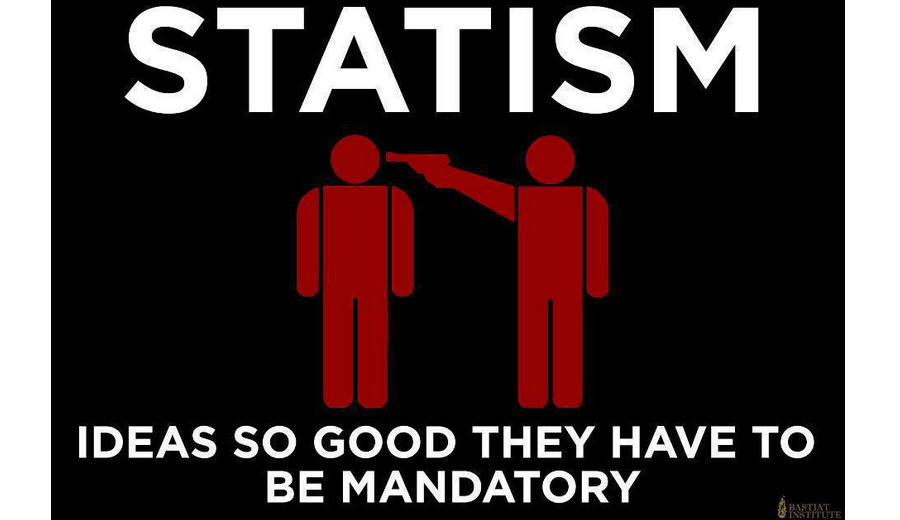 By Larken Rose
By Larken Rose
There are still misguided people who point to unpleasant, distasteful, or just less-than-ideal economic situations, and want to blame them on FREEDOM, and want to solve them by way of “government” violence.
 By Larken Rose
By Larken Rose
There are still misguided people who point to unpleasant, distasteful, or just less-than-ideal economic situations, and want to blame them on FREEDOM, and want to solve them by way of “government” violence.
You must be logged in to post a comment.
Hi Larken, you present good arguments against anti-free market zealots. You’re basically a very decent anti-statist.
Your problem however is with the “pro”-part. Your voluntarism is perhaps a bit too “thin,” as in assuming a lot about human nature and really just hoping for the best if and when the state is abolished. You need to complement the decontextualized individualism present in all of your arguments with a thorough appraisal of the human quest/need for community, religion, culture, nation (not the state!) etc.
That’s where your weak point lies with regard to winning people over. They spot the artificial and even utopian tendency of uprooted (classical) liberalism. You’ll deny this, no doubt, but people aren’t as stupid as you sometimes make them out to be.
Having said all this, I’d still join anyone in the fight to break up power in as many fragments as possible (power, not only in its predominant statist variety. Soros-style NGOs should also be demolished – it’s just self-defence ;).
First and foremost, the neocon Washington empire must be dismantled, preferably by means of secession from the artificial and bloody “Union” called the USA. Would also be great for world peace if the US dissolved into as many states/counties possible.
In short: The growth of freedom always limits the state, yet shrinking or abolishing the state doesn’t necessarily mean an increase of liberty. Full stop.
Excellent points. There is a reason why governments form and are “allowed” to metastasize. Look at history. It is an ugly reality that the masses want to be governed. It’s a form of abdicating responsibility and having an outside, more powerful force guide you. It’s why some people are zealots about government just like others are zealots about their religion.
Thank you for your reply and yes, you’re right in substance with your implicit reference to Étienne de La Boétie who wrote about people choosing for servitude.On the other hand, one might interpret the same phenomenon in a more “masses”-friendly way, as people’s natural desire for justice. Sounds less derogatory.
Speaking of which.. In another vid by Larken Rose, I noticed the following Randian stain on his otherwise solid point of view:
Rather off putting and distracting, this Randian bias against religion. Larken still has some lessons to learn that the great Murray Rothbard only learned late in life. Lessons about the importance of nation (not state), religion, culture and so on for a free society. The NAP simply won’t do without a culture supporting/presupposing it.
So yes, I agree with you that people can be zealous about government and about their religion, but I hope you didn’t forget to mention that people can be equally zealous about their anarchism, because you suffer from the same anti-religious bias as Larkin apparently does.
Religion is one of the basic blocks of a society. We all have religion–not to be confused with organized reigious dogma.
Can you give one example of “religion” we all have and also one example of “organized religious dogma,” presumably one you disapprove of? Thnx.
I’ll give it a shot. This is my opinion of course as even the “experts” have a hard time. To me religion boils down to a moral code of beliefs we live by even if that code is amoral. Living within the code is good and outside is bad– the personal protocols we follow based on our code. As for dogma an easily recognized one comes from Christianity–that only belief in Jesus will save our souls. I disaprove of absolutes not the path itself. Obviously a loving creator of the universe is not going to be as narrow minded as humans.